While the Face of Black College Baseball Grows Whiter and Whiter

Bluefield State College on the left and Xavier University on the right paused for the signing of the Negro National Anthem before start of Black College Baseball Championship game May 1, 2021 at Riverwalk Stadium, Photo by Cascade Publishing House.
When I was a high schooler in Macon, Georgia, I dreamed of playing collegiate baseball at Georgia Tech in Atlanta during the early days of school desegregation. In 1969, the year I graduated from the majority white high school that I had integrated four years earlier, there were no Black American baseball players on the Georgia Tech baseball team.
Barely 20 Blacks had sat in a classroom at Georgia Tech. Two of those students, Karl “Pee Wee” Barnes and Eddie McAshan, men my age, who entered college the same year as me, played on the football team.
Several years later, Tech would bring in a Black American as a member of the baseball team. By that time, I had walked onto two Black college baseball programs (Fort Valley State College and Tuskegee Institute) and had played in a collegiate baseball conference All-Star game and two National Collegiate Athletic Association Regional Baseball Tournaments.
Had there not been Black colleges offering baseball as an extra curriculum activity, my dream of playing college baseball would have gone unfulfilled. When I entered college, there was no such thing as Historical Black Colleges and Universities. This phraseology had not entered the lexicon. In 1971, President Richard Nixon coined the phrase to identify funding designed to shore up his standing with middle-class Black Americans.
This year BCSG 360, led by its Chief Executive, Prentiss Hill, organized a Black College World Series. He partnered with Black College Nines, an online magazine that prides itself on maintaining the history and legacy of Black college baseball. Also, with the Montgomery Biscuits, a minor league baseball franchise operated by the Tampa Bay Rays.

The Legacy Museum is free to visitors for the remainder of the year due to COVID-19. Sadly, none of the schools participating in the first Black College World Series took advantage of the opportunity to visit its exhibits. Photo credits Cascade Publishing House.
The top Black college teams played at Riverwalk Stadium, home of the Montgomery Biscuits, near a site that had housed Union soldiers captured during the Civil War and close to warehouses where Africans huddled before they were marched to the auction block. About 100 yards away stands the Legacy Museum which today tells the story of Black lives struggling to live free in the cradle of the Confederacy.
Down on the field, Bluefield State College, Xavier University, Edward Waters College, Rust College, and Savannah State University prepared to compete in a double-elimination tournament to crown a Black College Baseball Champion for the first time in the history of Black college baseball. All three schools, except Savannah State, which was founded in the early 20th century as a teacher college named Georgia State College, were founded in the 19th century following the enslavement period to provide educational opportunities for first or second generation of free Black Americans.
Into the seats came young Black men hoping to become the next generation of Black college baseball players. There were little leaguers from Hoover, Alabama, to high school seniors from Riverdale, Georgia, and Birmingham, Alabama, in the stands who came to the World Series hoping to speak with a Black College baseball coach and to see Black baseball players perform on the collegiate level.

The Bunkley family attending the first Black College Baseball World Series. On the front row is Terris, Torian, with Terence and Eva Jane in the back row. Photo by Cascade Publishing House. April 30, 2021.
“We are a baseball family,” said Eva Jane Bunkley, a two-time Emmy Award-winning make-up artist. She drove over from Riverdale, Georgia, with her husband Terence and sons Torian and Terris. While Terris is a champion golfer at Morrow High School level, Torian enjoys baseball where he is a good hitter and defensive out fielder.
While in Montgomery, the Bunkley family took advantage of the opportunity to visit the Peace and Justice Memorial to give the young Bunkley men a deeper perspective of American history.
Torian has his eyes on the baseball program at Tuskegee University. During a break in the action, he introduced himself to Tuskegee’s Head Baseball, Coach Reggie Hollins. Torian, six feet two inches and 185 pounds, is interested in engineering and the medical field. Tuskegee has a world-renowned engineering program, a coach who recruits academically strong student-athletes, and needs another speedy outfielder to roam the spacious confines at Washington Field.
Cameron Ray, a senior at Briarwood Christian School in Birmingham, Alabama, drove down to Montgomery with his dad Carlin Ray, a machinist by trade.
“I wanted Cameron to get the HBCU experience,” said Mr. Ray, a graduate of Wilberforce University, the nation’s first Black college and home of one of the first college baseball programs in the country.

From left to right Cameron Ray and Carlin Ray drove down from Birmingham to witness the first Black College World Series. Photo by Cascade Publishing House
“Cameron has only played with white kids. Usually, he is the only Black on the field. I brought him to the Black College World Series because I want to give him a bit of the HBCU experience. I want him to know that good baseball is not only played at white schools,” Ray explained.
Cameron has his eyes on Morehouse College. He has earned an associate degree while in high school. He will have his college degree in two years and may be ready for the work world. Without a doubt, Cameron has the stuff of which Morehouse men are made. He wants to major in film in college and this gives Coach Antonio Grissom a decided edge in the recruitment war that is heating up with the fine baseball program at Jackson State University.
“I am looking to see some good baseball and to see people who look like me playing it,” Cameron said before Bluefield State College and Xavier University squared off for the honor of being the first champion of the Black College World Series.

Legacies of the past die hard, as flags more representative of the Confederacy than the new south proudly fly on the site of Riverwalk Stadium. Photo credits Cascade Publishing House.
According to BlackPast.Org, “Through the 1970s, the faculty and administration [Bluefield State College] remained predominantly black, but in the 1980s and 1990s, the faculty, administration, and student body became mostly white. By 1998 there were no African American faculty members, and black students were only eight percent of the entire enrollment of 3,506 students — the lowest percentage since the institution’s founding in 1895.”
The baseball team boasted of four Black American student-athletes, all starters in each game of the series.
White faces filled stands on the Bluefield State side of the stadium. The parents and grandparents drove down to Alabama to see their children compete for a national title. On the other side of the stadium were Latinos and Black Americans.

Bluefield State College beat tournament top seed Xavier University two out of three games to win the first Black College World Series Championship. Photo curtesy Black College Nines.com
“I think it is a shame,” said a grandmother from Mississippi who traveled to the game to support her grandson in the first Black College World Series, “to see the picture in the paper tomorrow with a team full of white faces as the winner of the first Black College World Series.”
This grandmom did not want to be named. She said she is a graduate of Jackson State University. She lamented that soon there would not be a place for Blacks in college baseball.
“When you look at Mississippi and Alabama,” she said, “you don’t see but one to three Black players. I don’t think that is how it ought to be at the HBCUs. I’m not saying they should not have white players, but there should only be two or three of them like you see at the big white schools,” she explained.

Michael Coker on the right and Harold Michael Harvey on the left snap a selfie during a break in the action at the first Black College Baseball World Series, April 30, 2021. Photo by Cascade Publishing House.
Michael Coker, Contemporary Lead Reporter at Black College Nines, and the coordinator of the World Series event, said, “I hope the Black College World Series will encourage more Black kids to play baseball at an HBCU.”
Raymond Brown drove over from Selma, Alabama, to root for Xavier’s coach, Adrian Holloway whom he coached in high school at Selma High. Brown, who played collegiate baseball at Selma College, said it was disheartening to see Black college baseball’s changing face. A native of Tuskegee, Alabama, Brown recalled the talented Tuskegee teams of the 1970s and 80s.
To counter the lack of opportunities for non-white collegiate baseball players, heralded high school baseball coach Alex Wyche of Redan High School in Decatur, Georgia is sponsoring an HBCU All-Star Game June 7–8, 2021 at Hoover Met Stadium in Hoover, Alabama. It is the first All-Star game of its kind in the history of Black College Baseball.

Photo curtesy of MinorityBaseball.com
“I’m limiting participation to minority college baseball players because these guys don’t have the opportunity to fully display their skills to professional scouts,” Wyche said.
Three years ago, Wyche sent eleven of his players to Division I baseball programs. Several of his players have signed professional contracts after graduating from Redan High School.
The HBCU All-Star Game sponsored by Wyche’s MinorityBaseball.com, will feature a pro-style showcase on Monday, June 7, followed by a youth clinic, then a home run derby to cap off the first day’s events.

Ronald McGhee preparing for graduation from Tuskegee University on Mother’s Day and for the Black College Baseball All-Star game in June. Photo by Cascade Publishing House.
The showcase will allow players like Tuskegee catcher Ronald McGhee to showcase his skills. Last year, McGhee got off to a hot start, but his season was derailed by COVID-19. This year in a shorten season, McGhee was just finding his rhythm at seasons end, and his stats do not reflect the talent he brings to the game.
Fans looking for another opportunity to see talented Black baseball players can find it in June at the HBCU All-Star Game.
While Coach Wyche is filling a void, Coach Brown wondered out loud, “Where are Black kids supposed to play baseball if they can’t play at an HBCU.”
“This picture just doesn’t look good; a white school wins the first Black College World Series,” incredulously opined the grandmother from Mississippi.
Harold Michael Harvey is the Living Now 2020 Bronze Medal winner for his memoir Freaknik Lawyer: A Memoir on the Craft of Resistance. He is the author of a book on Negro Leagues Baseball, The Duke of 18th & Vine: Bob Kendrick Pitches Negro Leagues Baseball. He writes feature stories for Black College Nines. Com. Harvey is a member of the Collegiate Baseball Writers Association and a member of the Legends Committee for the National College Baseball Hall of Fame. Harvey is an engaging speaker. Contact Harvey at [email protected]

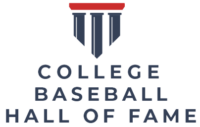
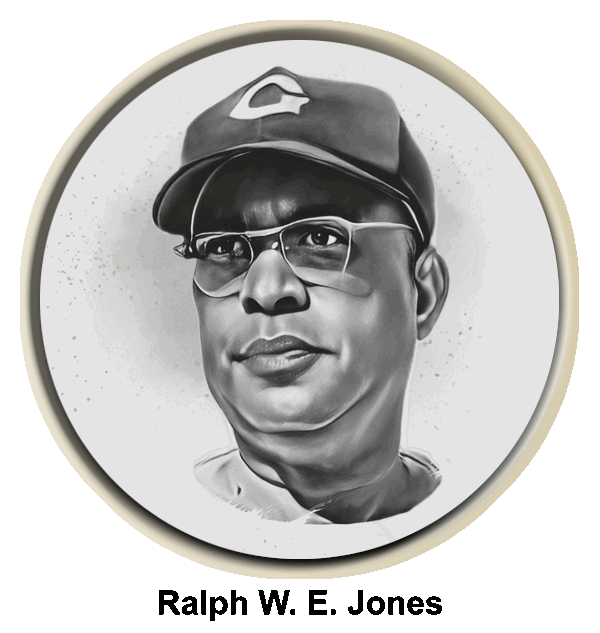






















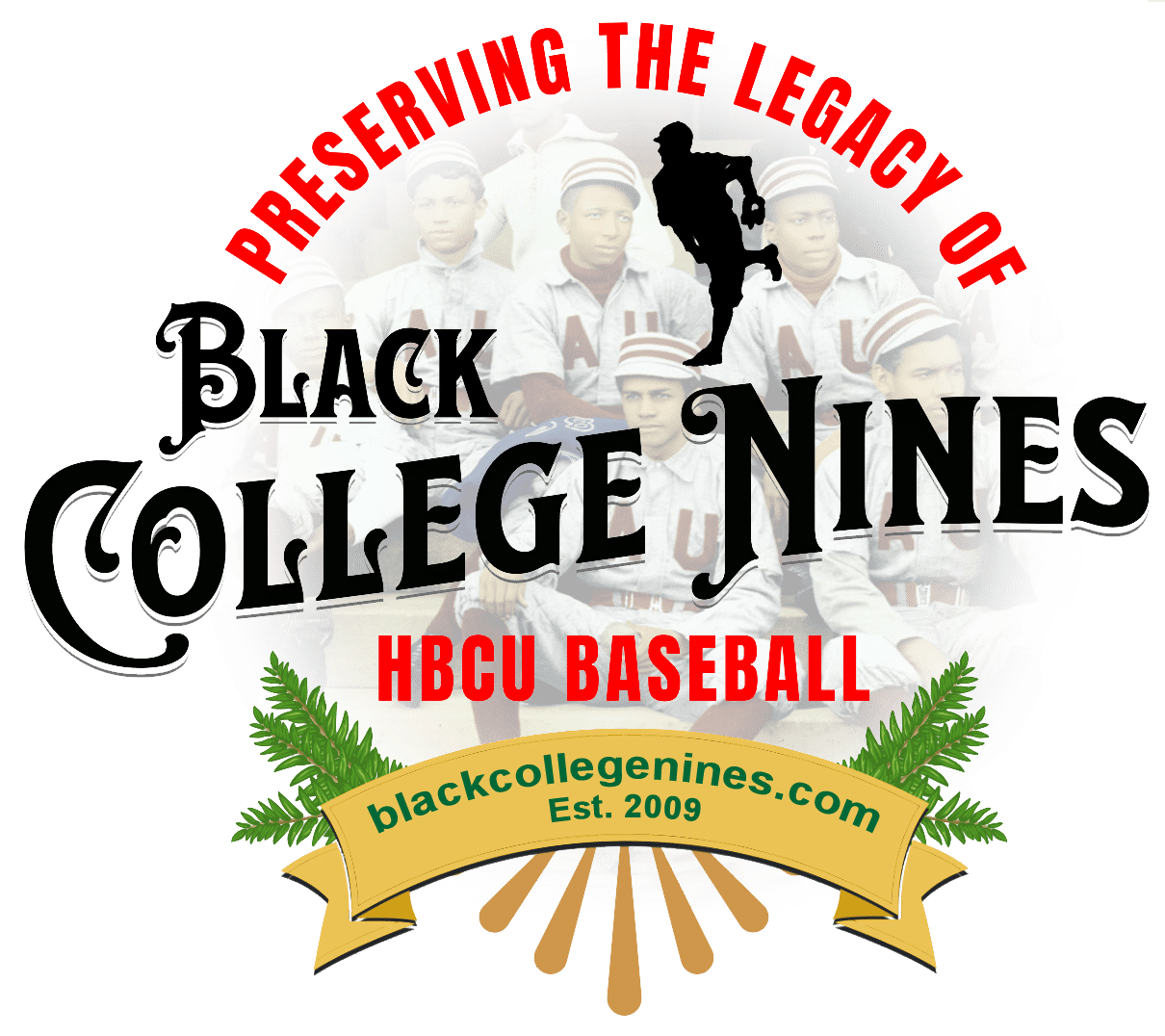







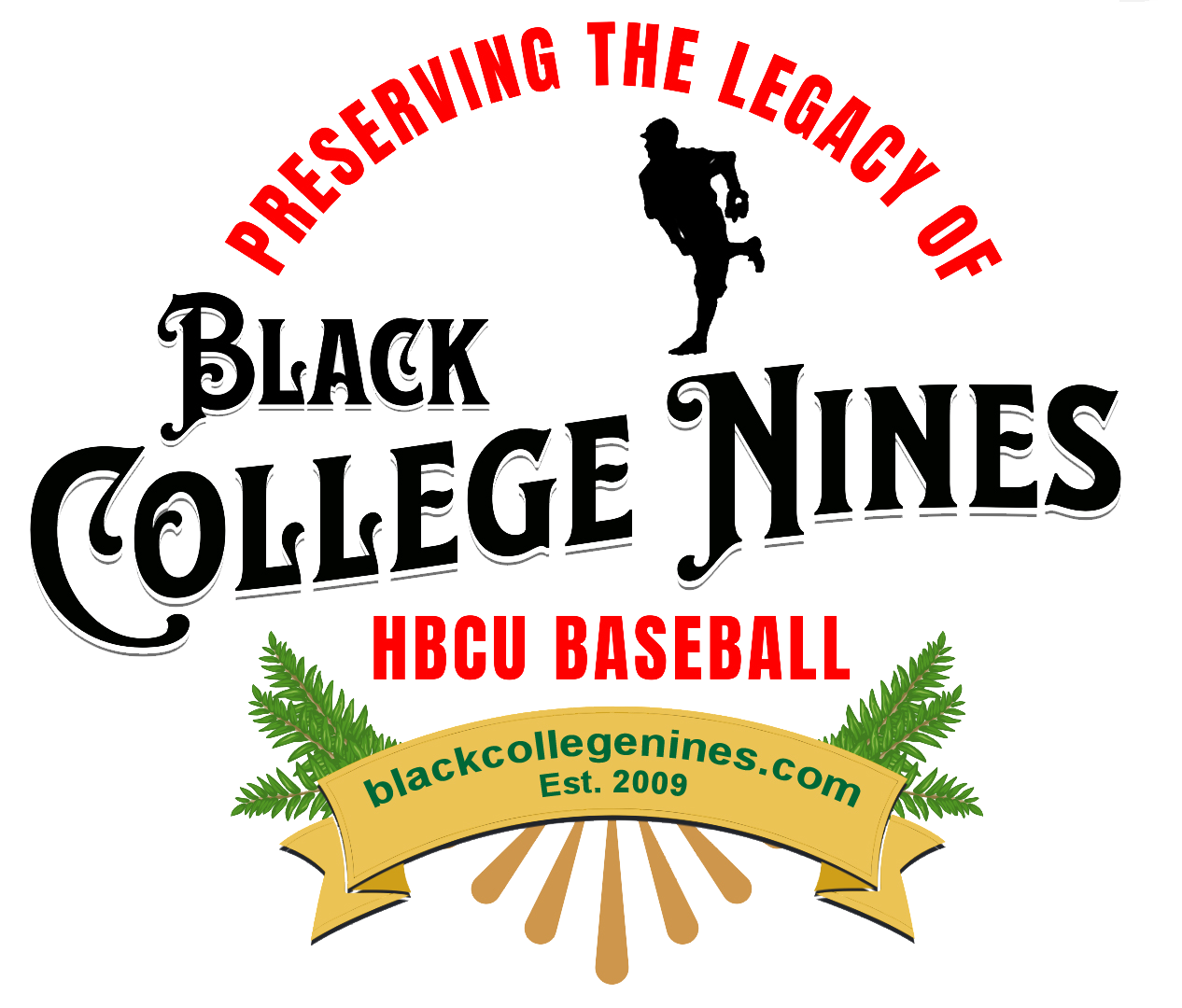
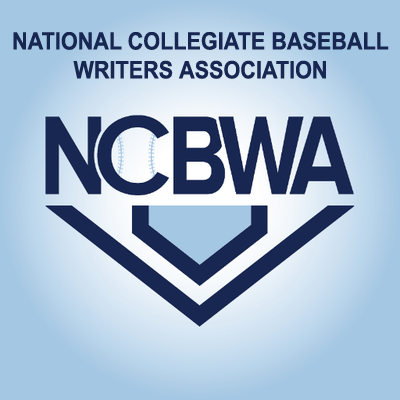



Mr. Fair, I agree, “all competition should be welcome and encouraged.” For Black parents and Black young men looking for a place to play college baseball, the question becomes, where is that place? In the past several years, the competition for baseball roster spots at Black colleges has gotten stiffer for Black student-athletes, many of whom are not considered by predominately white educational institutions. The Mississippi grandmother’s lament was to diversify but not destroy the traditional mission of the HBCUs. I am sure you are aware that the mission is to provide educational opportunities to descendants of enslaved people in this country. Why is it so difficult to get the same kind of diversity at the University of Alabama, Auburn, or the University of Georgia and Georgia Tech? Why should the burden of diversity be shouldered by HBCUs? Perhaps God has called HBCUs to a higher purpose. If so, I hope the lesson rubs off on predominately white universities in a hurry.
I am a 1976 graduate of Savannah State University (formerly Georgia State College). I like the competition of all players (i.e. Black, White, Latino, etc.). At Savannah State, we have a “multi-racial” team, and we have won numerous, SIAC conference championships over the years. And, we won one championship, when we were competing in the MEAC. Not a surprise, our men and women’s golf teams are composed of the same diversity. I enjoyed reading the awesome article. And, I understand the comments of the grandmother, who was from Mississippi. I believe she was surprised of the composition of the championship team. Please note, Bluefield State College has been an HBCU since its inception. Tennessee State University and Kentucky State University have a significant number of Whites, who matriculate its Universities. Again, all competition should be welcomed and encouraged!
BLUEFIELD STATE, HISTORICALLY Black College, but no more? One of my best friends, who is White and a leader among White people, read your comment and remarked to me that it sounded like the person who wrote it believes white people should take over all of the HBCUs as they did at Bluefield State. Also, my White friend thinks that comment suggesting that Black kids do not like living in places where the temperature “rarely gets above freezing in the winter and that there is nothing to do but hunt, and fish” is, for lack of a stronger expression, racially insensitive. Many of my Black friends, including me, enjoy hunting and fishing in all kinds of weather.
HBCU, HISTORICALLY Black College, no such thing as a black or white college anymore, no? One of my best friends who is Black and recently on the Western Carolina Football staff, tells me a big problem there is getting elite black athletes to Cullowhee and if you do get them there, retaining them, you see it very rarely gets above freezing in the winter, there is not much in the way of social life and nothing to do but hunt and fish, ditto for Bluefield WVA.FWIW I enjoyed interacting with all the different people I met in Birmingham and watching my son compete against what I thought was very good competition.